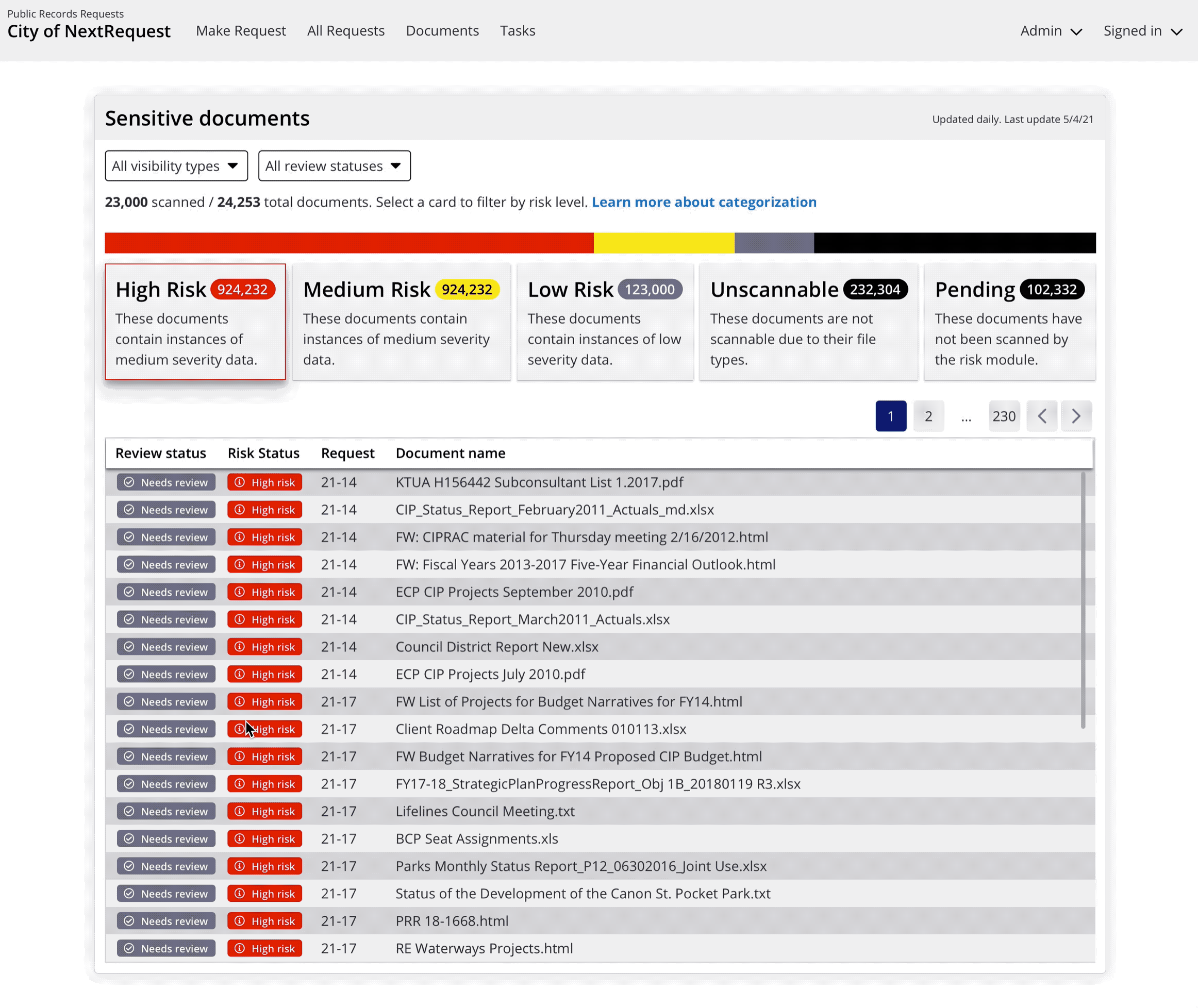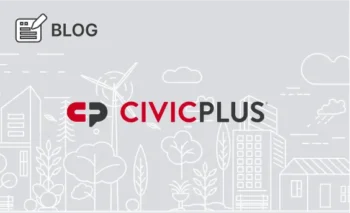Handling Sensitive Information in Public Records: The Risk Module
Sensitive information can be found in most public records. It’s less a question of if there is sensitive information and more how much. Redactions can take a long time on longer records requests and the last thing you want is to miss something before releasing it to the requester.
In today’s world, government security and technology protection is imperative to keeping information confidential. Agencies are seeing more records requests than ever before. Requests themselves contain hundreds, sometimes thousands of documents to sort through. Some departments only have one FOIA officer or records custodian to handle such a large task. With COVID19 continuing, agencies are understaffed, overworked, and sometimes left with more than they can handle.
To ease the burden, we have created the Risk Module. The latest in FOIA technology, the Risk Module, helps keep classified information secure and makes collaboration easier than ever.
Collaborate With Your Colleagues
Documents with sensitive information take time to be reviewed and can involve multiple departments. It can be difficult to keep track of what documents have been reviewed, if they are ready to be released to the public, and what needs to be done next. The Risk Module offers a simplified workflow solution with built-in document review tags. Avoid phone tag with colleagues, unanswered emails, or chasing after a coworker at the water cooler to get an answer.
Documents are labeled to help staff keep track of which documents still need to be reviewed and which are ready to be released. The all-in-one dashboard displays the count of all documents, sorted to show those tagged with “needs review” and “reviewed”. Once reviewed, it is simple to reassign the document to another staff member to complete the records request.
Keep Your Sensitive Information Secure
Do you know what’s lurking in your documents? Classified information like social security numbers, employee login information, financial details, and so much more is hidden in public records. If a request is large enough, it can take a long time to comb through page by page to search for sensitive information. The temporary liens for FOIA request response times granted at the start of the pandemic have been lifted and records request response times are being enforced. Agencies need to be doing everything they can to maintain compliance.
The last thing you want to happen is a document is released to the public that hasn’t been properly reviewed. The Risk Module automatically scans for sensitive information in all uploaded documents and assigns each document a risk level, based on how much or what type of sensitive information was identified. This allows users to gain a deeper insight into why a document has been flagged with an associated risk level, what data was found, and how many instances.
Customers with the Risk Module will see these risk levels in the aggregate on the Admin Document Dashboard, as well as on the Request Show Page. Additionally, when releasing documents to the public, NextRequest Risk Module will provide a report of the risk levels of the associated documents for one final check before publication.

Additionally, each document has more detailed risk findings shown on the document viewer page. This can assist the reviewer in zeroing in on the sensitive information to make an informed decision about redaction and/or publication.
Latest Tech
Human error is an inevitable part of government work or any kind of work, but when processing records requests, there is little room for mistakes. Newer technology is being developed and introduced into government work every day. As newer technology like artificial intelligence is being introduced to assist with government tasks, workflows are becoming more efficient.
The Risk Module utilizes the latest in FOIA technology, machine learning and pattern matching, to scan uploaded documents for the likelihood that they contain sensitive information. The types of data that can be identified are credentials, personal health information, financial information, and personally identifiable information. Scanning is automatic and keeps documents routinely updated for minimal upkeep. To view everything in one place, the all-in-one dashboard shows all documents across your portal, including their risk level, review status, and insight information.
Risk Module for Secure Sensitive Information
NextRequest can help you modernize your records request process and save time and money using our top-rated FOIA software. The solution to keeping classified information secure, maintaining compliance with FOIA, and freeing officials from tedious redaction work is the Risk Module. To learn more about the Risk Module, click here.

